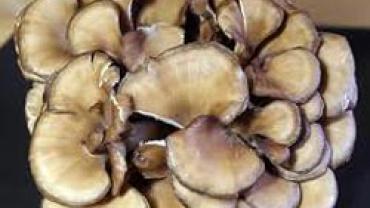
Unlike the reishi mushroom which in a past blog I discussed the clinical relevance of this uneatable mushroom the maitake mushroom is an absolutely delicious and tasty culinary as well as medicinal mushroom that can be found in many grocery stores.
Maitake is a large mushroom native to the mountains of northeastern Japan and has been used for many years as a powerful medicinal. And although known in Japan for many centuries it only started gaining serious attention in the United States in the last 20 years.
The Latin name is Grifola frondosa which refers to the mythical griffin. The name maitake means "dancing mushroom" in Japanese. It is also known as the "hen of the woods" "sheep's head" "king of mushrooms" and "cloud mushroom."
Like its medicinal cousins the maitake mushroom contains polysaccharides including beta-glucans which serve to promote an enhanced immune system response. The beta-glucans in the maitake mushroom boost the activity of various immune cells including t-cells inducing the production of interleukins and other cytokines that have for instance anti-cancer properties while also helping to balance Th1/Th2 immunity.
But it is maitake's other properties and mechanisms of action that make it such an intriguing and useful therapeutic tool. For instance maitake extract displays various properties that make it useful for those suffering with metabolic syndrome. In animals models it was able to lower blood pressure while improving glucose metabolism insulin sensitivity and decreasing atherosclerotic lesions.
Maitake displays antiviral capacity as it contains a protein that has been shown to be active against the herpes simplex virus.
While maitake's benefits may make it unique due to its metabolic benefits like its other mushroom peers maitake shows activity against a variety of cancer cell lines especially breast cancer and lung gastric and colon cancer cell lines as well.
As I mentioned earlier maitake mushrooms are an excellent culinary mushroom and can be used either as a substitute for conventional mushrooms or as an addition to buttons in dishes like mushroom ragu soups and sauces. Below are links to some great recipes and ideas as well as a source I like to use that sells other edible organic dried medicinal mushrooms like shitake and matsutakes.
While fresh mushrooms are of course always better to use the dried variety when kept in the freezer will last for many months and will therefore always be available when the mood strikes.
by Michael Fuhrman D.C.